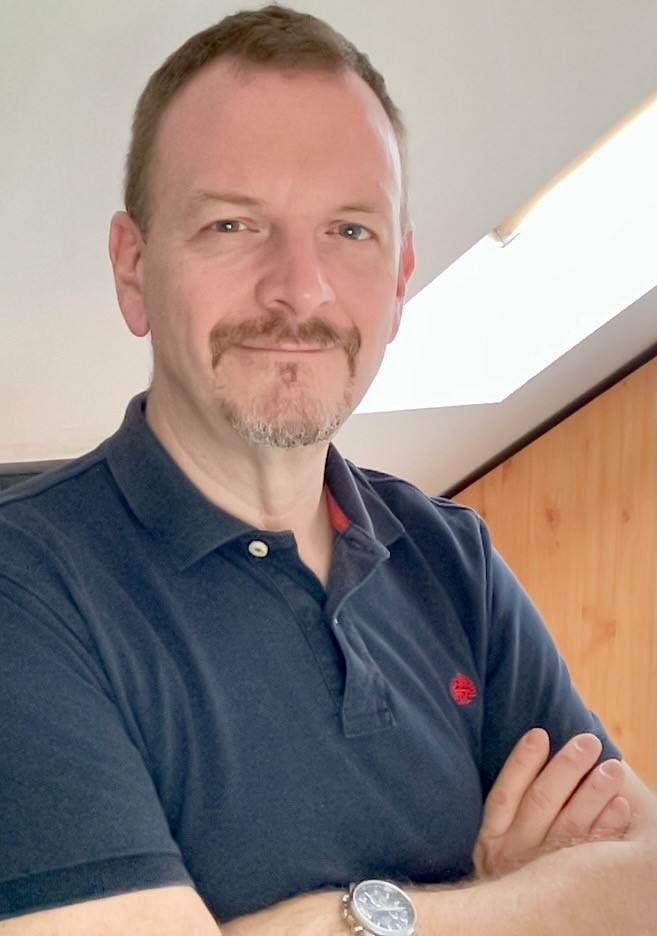Prof. Dr. Ákos Horváth - MATE Research
Overview
Ákos Horváth is a professor at the Department of Aquaculture of the Institute of Aquaculture and Environmental Safety. He serves as chair of the Department of Aquaculture and as a deputy director of the Institute.
His research focuses on the reproductive biology of fish, in particular on the biology and preservation of fish gametes. His expertise lies in the cryopreservation of fish gametes, culture and transplantation of germline stem cells in fish. In addition, his work concentrated on the development of brown trout populations in Hungary.
Prof. Ákos Horváth’s work contributes to questions of how live cells and tissues survive ultra-low temperatures in field conditions.
His theoretical work examines how natural and farmed salmonid stocks in Hungary evolved as a result of stocking and introduction of non-native genotypes. His empirical work has assessed these theories in settings ranging from farmed broodstocks to natural populations of the brown trout.
Across his research, he uses state-of-the-art techniques such as computer-assisted sperm analysis, cryopreservation, vitrification and transplantation of live cells.
His findings are instrumental in the cryobiology applied to aquaculture practice. He made significant contributions in the fields of assisted reproductive technologies in aquaculture.
He has authored and co-authored 100 research articles in high-impact scientific journals.
Prof. Horváth has collaborated with 12 research groups across Europe and worldwide, and he has successfully applied for 11 research grants nationally and internationally.
He is the Editor of Columella – Journal of Agricultural and Environmental Sciences and is a member of the editorial board of the journals Archives of Biological Sciences as well as the Journal of Applied Ichthyology.
Research keywords:
Publications
Horváth, Á., Jug-Dujaković, J., Radočaj, T., Barić, O., Špelić, I., Balogh, R. E., Lefler, K. K., Kitanović, N., Marinović, Z., Urbányi, B., & Gavrilović, A. (2024). Cryopreservation of European flat oyster (Ostrea edulis) larvae using a controlled-rate freezer. Aquaculture, 587, 740887. https://doi.org/10.1016/j.aquaculture.2024.740887
Pataki, B., Horváth, Á., Mészáros, G., Kitanović, N., Ács, A., Hegyi, Á., Molnár, J., Csorbai, B., & Urbányi, B. (2022). Adjustment of common carp sperm concentration prior to cryopreservation: Does it matter? Aquaculture Reports, 24, 101109. https://doi.org/10.1016/j.aqrep.2022.101109
Kása, E., Bernáth, G., Kollár, T., Żarski, D., Lujić, J., Marinović, Z., Bokor, Z., Hegyi, Á., Urbányi, B., Vílchez, M. C., Morini, M., Peñaranda, D. S., Pérez, L., Asturiano, J. F., & Horváth, Á. (2017). Development of sperm vitrification protocols for freshwater fish (Eurasian perch, Perca fluviatilis) and marine fish (European eel, Anguilla anguilla). General and Comparative Endocrinology, 245, 102–107. https://doi.org/10.1016/j.ygcen.2016.05.010
Martínez-Páramo, S., Horváth, Á., Labbé, C., Zhang, T., Robles, V., Herráez, P., Suquet, M., Adams, S., Viveiros, A., Tiersch, T. R., & Cabrita, E. (2017). Cryobanking of aquatic species. Aquaculture, 472, 156–177. https://doi.org/10.1016/j.aquaculture.2016.05.042
Horváth, Á., Miskolczi, E., & Urbányi, B. (2003). Cryopreservation of common carp sperm. Aquatic Living Resources, 16(5), Article 5. https://doi.org/10.1016/S0990-7440(03)00084-6
Projects
NKFI SNN 116912: Interspecific transplantation of freshwater fish spermatogonia
In this project we used the most state-of-the-art scientific methods to contribute to conservation of threatened and endangered fish species in a Hungarian-Slovenian collaboration. Spermatogonia of male fish were transplanted into gonads of related but more common species. Recipient individuals serve as surrogate parents to produce the gametes of the endangered species and allow their recovery in case of a natural disaster. Parts of the work include identification and isolation of spermatogonia, cryopreservation of spermatogonia (that will allow their storage for an indefinite period of time), transplantation of spermatogonia into recipients, finally rearing and spawning of recipients.
NKFI K138425 Research towards in vitro gonads in freshwater fish
The objective of the project is the development of artificial gonads (testes, ovaries) in freshwater fish. To this end, germline stem cells of the given species are studied, cultured and their development into functional sperm and eggs is induced using a suitable hormonal environment. Artificial gonads are developed both in two-dimensional culture (involving one or two layers of cells) as well as in a multilayered three-dimensional culture. Developed artificial gonads have the potential of application in numerous fields.
GINOP-2.3.2-15-2016-00025 Innovative development of genetic resources and farming technology for our economically important commercial fish (catfish, carp, pikeperch), adapted to consumer needs
The project aims to improve the farming technology of three indigenous fish species, carp, catfish and perch, taking into account technological developments and consumer needs. The project brings together four leading indigenous fisheries research and education institutions to carry out the pilot development identified in the objective. The project will establish a live and a frozen gene bank for pikeperch and catfish. For pikeperch, the partners aim to develop a broodstock rearing system, industrial larval and juvenile rearing technology and distance education technology. For catfish, the project aims to develop a two-year combined rearing technology and a specially selected catfish broodstock. For carp, the most farmed species in the country, the consortium plans to carry out a number of very complex tasks to improve the efficiency and safety of production.
URL: https://palyazatok.uni-mate.hu/web/mate-pályázatok/GINOP-2.3.2-15-2016-00025, http://goodfish-ginop.blogspot.com





